Staff
Academic Staff
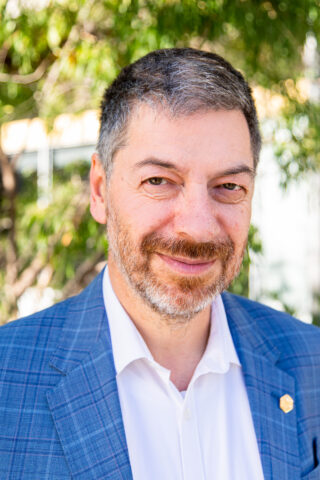
John Curtin Distinguished Professor Boris Gurevich
Director, Centre for Exploration Geophysics
Director, Curtin Reservoir Geophysics Consortium
WASM: Minerals, Energy and Chemical Engineering
Boris obtained his MSc at Lomonosov Moscow State University in 1981 and began his career at the Moscow Institute of Geosystems. His early work included numerical analysis of NMR signals, application of pattern recognition to direct detection of hydrocarbons from seismic reflection data and poroelasticity. The latter subject became Boris’s long-term obsession. His first steps in this area were focused on quantification of dispersion and attenuation due to mesoscopic flow in thinly-layered poroelastic systems, which formed Boris’s PhD thesis (1988).
In 1990s, after visiting research appointments at University of Karlsruhe (Germany), Birkbeck College and Elf Geoscience Research Centre (both in London), Boris joined the Geophysical Institute of Israel, where he combined his continued interest in poroelasticity with development and application of multi-focusing imaging.
In 2001 Boris was appointed Professor of Geophysics at Curtin University (under a joint appointment with CSIRO), where his research expanded into a large variety of rock physics topics, such as effective stress laws, stress dependency of rock properties and solid/fluid layered systems. At the same time, he continued to work on the topic of wave-induced fluid flow, studying such systems as patchy saturation; flow between pores and fractures; squirt flow; and heavy oil rocks. He has also collaborated with colleagues who specialise in seismic data processing and time-lapse analysis. This collaboration led to a number of interesting studies, such as development of new algorithms for estimation of azimuthal anisotropy from vertical seismic profiles, and modelling the seismic time-lapse response of CO2 injected into a reservoir rock.
At Curtin University Boris was Head of Department of Exploration Geophysics (2010-2015) and since 2004, the Director of the Curtin Reservoir Geophysics Consortium. In December 2019 he received the honorary title of John Curtin Distinguished Professor and was appointed Director of the newly formed Centre for Exploration Geophysics. In 2019 he was Society of Exploration Geophysics Honorary Lecturer for the Asia-Pacific Region. Boris has served on editorial boards of Geophysics, Journal of Seismic Exploration and Wave Motion. He is a Fellow of the Institute of Physics and has over 100 journal publications.
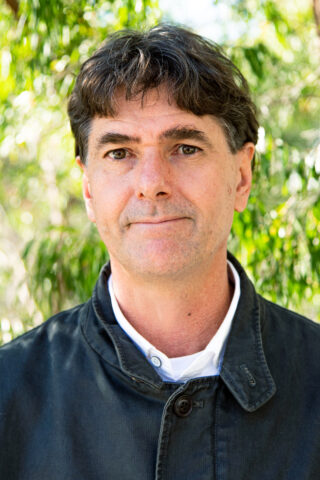
Professor Brett Harris
Curtin Exploration Geophysics Discipline Lead
Brett is a Professor and the Discipline Lead of Exploration Geophysics at Curtin University with expertise in areas such as electromagnetics and hydrogeophysics. Brett has a comprehensive industry and research background focused on technologies for search, delineations and development of subsurface resources. Brett has been Program II leader in Australia’s approximately $145 million dollar 8.5 year Deep Exploration Technologies Cooperative Research Centre (DET CRC) and is Principal Investigator of a MinEx CRC project involving Petrophysics for Mineral Discovery during Drilling.
Brett has established a large portfolio of research projects and is author on many research publications in high impact journals. He supervises several research students and has coordinated undergraduate subjects including advanced electromagnetism and potential fields, environmental geophysics and seismic interpretation. Brett consistently generates quality innovative research solutions from earth science projects that may span geophysics, numerical simulation, hydrogeology, geothermal technologies, mineral exploration, aquifer replenishment, geological sequestration of CO2, well logging and well field design.
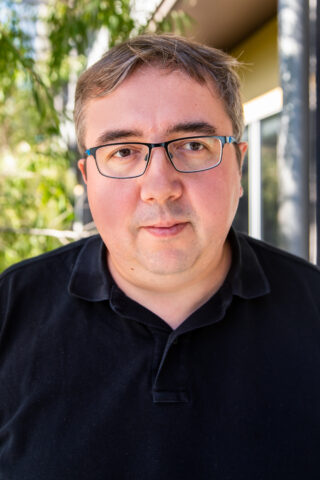
Professor Roman Pevzner
Roman is a Professor of Geophysics at Curtin University and his achievements include the “Outstanding Contribution to Science” and “People’s Choice Award for Best Presentation” awarded by the 2012 CO2CRC Research Symposium; “Award of Appreciation for Outstanding Contribution to the CO2CRC Stage 2C Project” and CO2CRC’s prestigious honour, the 2017 Inaugural John Tyndall Award for Excellence in Carbon Capture and Storage (CCS) Research.
He is an expert in seismic imaging and monitoring with over twenty years of experience in the field. His recent research focuses have been in application of seismic monitoring in CO2 geosequestration, borehole seismic methods and distributed acoustic sensing (DAS). Roman’s core expertise lays in the development of methods for seismic data acquisition, development of the novel processing algorithms, with DAS being a main research topic focus of his research in recent years. He led Stage 2C of an ongoing project with CO2CRC, the first CO2 geosequestration demonstration in Australia and is currently leading the continuing stage 3 of the project.
Roman has contributed as co-inventor to two patent applications in the area of seismic exploration and has served as Associate editor for Exploration Geophysics since 2015.
Roman obtained his PhD in Geophysics from Lomonosov Moscow State University in 2004 and his MSc in Geophysics in 2001. His research interests also include exploration seismology, time-lapse seismic, seismic anisotropy, seismic attenuation, seismic data processing, analysis and imaging; and data processing algorithms.
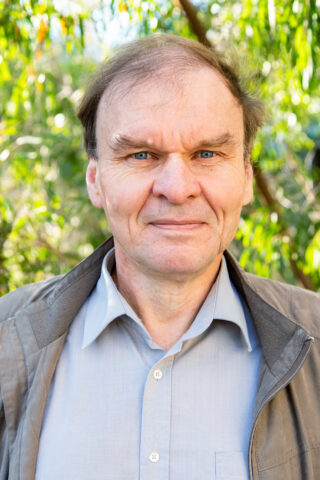
Adjunct Professor Maxim Lebedev
Maxim is a Professor of Exploration Geophysics at Curtin University with over 30 years of research experience in physics, material science and rock physics working at leading research organisations in Russia, Japan and New Zealand. Maxim obtained his MSc in Physics and Engineering in 1986 and his PhD in Physics in 1990 from Moscow Institute of Physics and Technology, Russia. He joined Curtin University in 2007 and became head of the experimental rock physics program. Using innovation, Maxim built a rock physics laboratory from scratch, which has become recognised as a world leading rock physics laboratory. He has published over 150 peer-reviewed papers and is the inventor of 11 international patents. Maxim’s current research is focused on the properties of subsurface reservoir rocks and minerals, including elastic and unelastic properties of rocks at teleseismic, seismic and ultrasonic frequencies; digital rock physics; mechanical properties of rocks at micro level (nanoindentation); and direct observation of multiphase fluid.
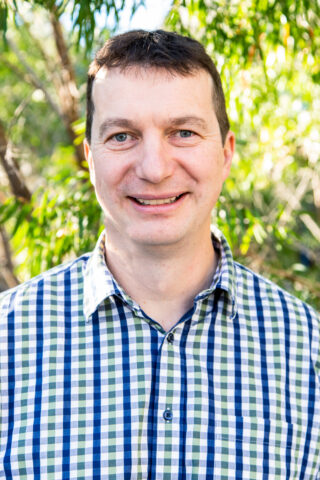
Adjunct Professor Andrej Bona
Andrej is a Professor of Geophysics within the Discipline of Exploration Geophysics where he has been a researcher since 2007. His research focuses include theoretical seismology, in particular on seismic imaging and anisotropy. Andrej has co-ordinated a number of large research activities in seismic methods for mineral exploration including trials of DAS methodology.
He was the principal investigator of projects including the MinEx CRC Seismic in the Drilling Workflow, Curtin’s scope of the DET CRC Project Seismic While Drilling, DET CRC Project 3D Seismic Exploration for Hard Rock Environments, and HiSeis Development of Novel Methods for Data Processing. His research interests are in theoretical seismology, with a focus on active and passive imaging of reflectors and diffractors in anisotropic media. Andrej received a MSc in Mathematical Engineering from Czech Technical University, Prague in 1997 and was awarded a PhD in Applied Mathematics from University of Calgary, Canada in 2002.
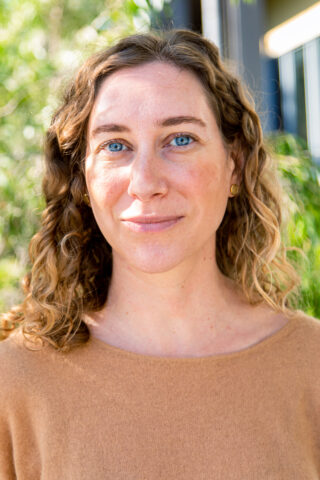
Dr Stephanie Vialle
Senior Research Fellow
Stephanie Vialle is a senior lecturer in WASM:MECE. Her primary interest lies in the understanding of the geophysical signature of the dynamic Earth subsurface in various fundamental and industry-related problems. Specifically, she combines experiments, theory and modelling from the pore to the field scale to probe coupled hydro-chemo-geophysical processes.
Stephanie has an initial background in Quantum Physics with a Magister from the University of Paris Sud and ENS Cachan (now Paris-Saclay University). She then earned a MSc in Geochemistry and a PhD in Geochemistry and Rock Physics from IPG Paris and Paris Diderot University (now University of Paris). Before joining Curtin University in 2014, she spent 6 years in California as a postdoctoral scholar at Stanford University and as an affiliate of Lawrence Berkeley Laboratory, pioneering the experimental observation and understanding of the role of chemical reactions for seismic monitoring of carbon storage in geological formations, for which she won a nomination for the ENI awards.
At Curtin University, she has led several government and industry funded projects, for a total of more than AUD$1M. She is currently developing technologies for the interpretation of the geophysical signature of ore deposits, and, with the Rock Physics group, for the imaging of elastic and mechanical properties of sedimentary rocks using nano-indentation technique.
Beside research, Stephanie is a dedicated educator and instructor. She currently coordinates and lectures several units on the Introduction to Applied Geophysics, from the BSc to professional levels (Graduate Diploma).
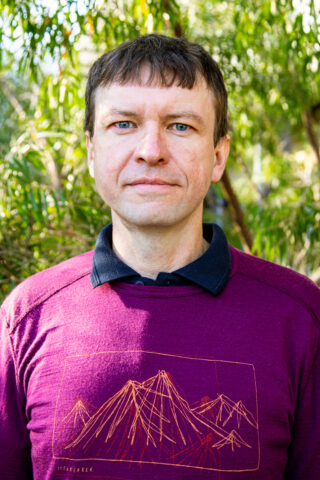
Dr Konstantin Tertyshnikov
Senior Research Fellow
Konstantin has been a Research Fellow at Curtin University since 2014. Konstantin received his Diploma in Geophysics and Seismology from Lomonosov Moscow State University in 2002 and his PhD in Geophysics from Curtin University in 2013. He has 16 years of combined experience in applied geophysics in both industry and academia. His expertise is focused on borehole seismic techniques and seismic data analysis. Konstantin is currently involved in a number of ongoing collaborative research projects including an ongoing project with CO2CRC that focuses on carbon dioxide geosequestration and involves multiple industry and international partners. Within this project he has led several field experiments involving international participants from France, USA, South Korea and Canada. He has also participated as a key researcher in DET CRC and MinEx CRC research projects.

Research Fellow
Olivia Collet joined Curtin University as a Research Fellow in 2022. She received an M.Sc. (2010) in geophysics from the University of Strasbourg, France and a Ph.D. (2015) in exploration geophysics from Curtin University, Perth, Australia. She worked as a research geoscientist for CGG Geosoftware for 5 years where she contributed to develop anisotropy, rock physics and machine learning software packages. She then held a postdoctoral position at the University of Pau and the Pays de l’Adour, France. Her research interests include fibre optic sensing, machine learning, rock physics, anisotropy, and reservoir characterization.
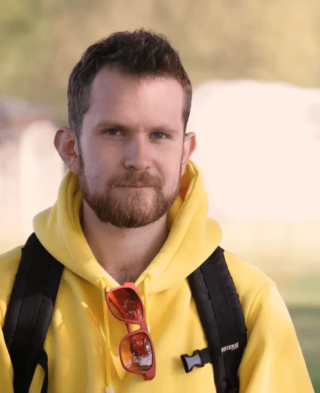
Research Associate
Roman completed his PhD at Curtin University (2019-2023). His research topic was: Continuous downhole seismic monitoring for CO2 geosequestration.
Roman Isaenkov graduated from Lomonosov Moscow State University with a Master of Science in Geophysics (with high distinction) in 2016. He worked as a geophysicist specialising in high-resolution marine seismic acquisition and processing. During his internship at CSIRO in 2018-2019,
Roman studied the effect of CO2 plume on time-lapse seismic data. He was granted a Curtin International Postgrad scholarship by CO2CRC to complete his PhD on Continuous downhole seismic monitoring for CO2 geosequestration during 2019-2022.
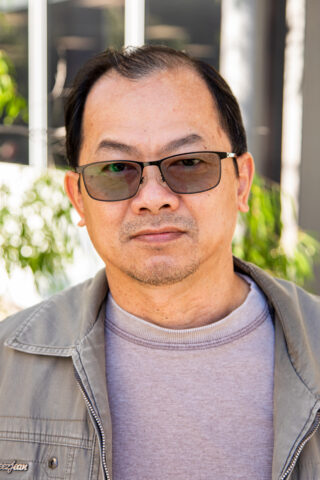
Dr Hoang Nguyen
Research Fellow
Hoang has been a Research Fellow at Exploration Geophysics since 2016. His areas of expertise include electrical instrumentation, embedded system and data acquisition, network routing and optimisation, and sensor networks. Hoang has a PhD in Communication Engineering from Edith Cowan University, an Associate Diploma in Electronics Engineering and a First Class Honours Bachelor of Engineering in Computer Systems.
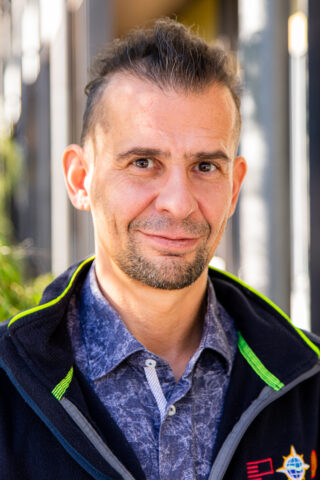
Mr Pavel Shashkin
Research Fellow
Support Staff
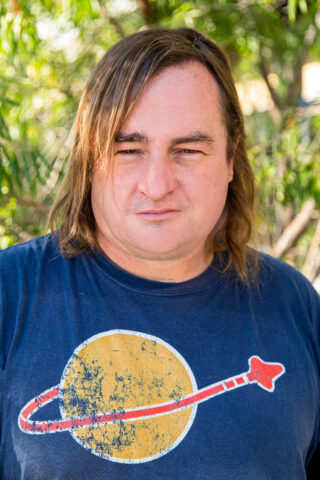
Mr Murray Hehir
Technician
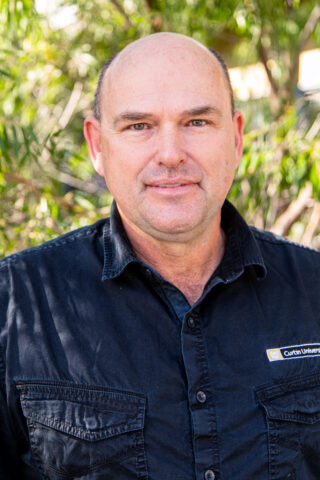
Mr Dominic Howman
Senior Technical Officer
